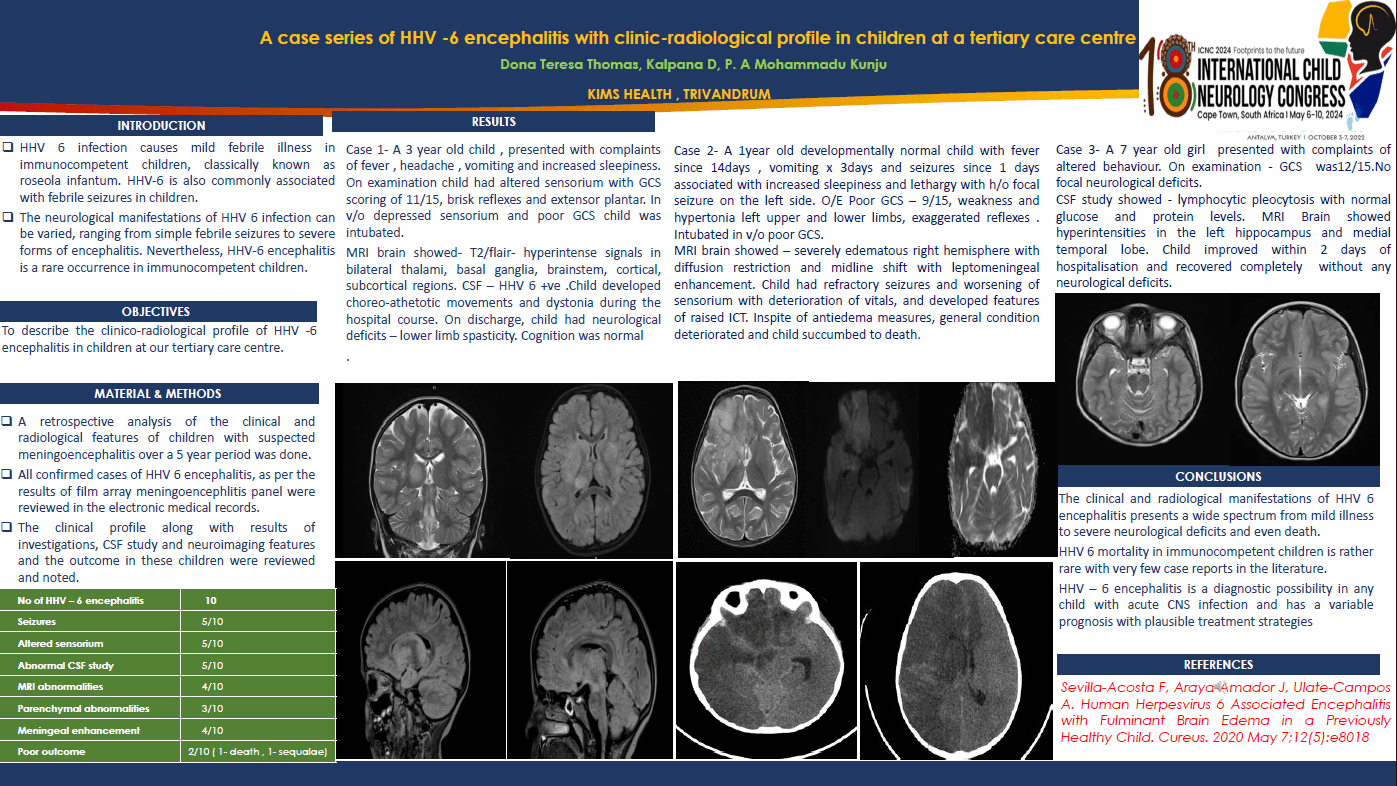A Case Series Of HHV - 6 Encephalitis With Clinic-radiological Profile In Children At A Tertiary Care Centre
Introduction HHV 6 infection causes mild febrile illness in immunocompetent children, classically known as roseola infantum. HHV-6 is also commonly associated with febrile seizures in children. The neurological manifestations of HHV 6 infection can be varied, ranging from simple febrile seizures to severe forms of encephalitis. Nevertheless, HHV-6 encephalitis is a rare occurrence in immunocompetent children Objectives- To describe the clinico-radiological profile of HHV -6 encephalitis in children at our tertiary care centre. Methods- A retrospective analysis of the clinical and radiological features of children with suspected meningoencephalitis over a 5 year period was done. Results- 10 children with HHV 6 encephalitis were identified in the study. Seizures and altered sensorium were present in 5/10 children. MRI abnormalities were present in 4/10 children with parenchymal abnormalities in 3 of them. 2/10 children had poor outcome in the form of neurological sequalae and death. Conclusion- The clinical and radiological manifestations of HHV 6 encephalitis presents a wide spectrum from mild illness to severe neurological deficits and even death. HHV 6 mortality in immunocompetent children is rather rare with very few case reports in the literature. HHV – 6 encephalitis is a diagnostic possibility in any child with acute CNS infection and has a variable prognosis with plausible treatment strategies Disclosures – None
Dona Teresa Thomas
Aster Medcity
India
P.A Mohammadu Kunju
KIMS HEALTH
India
Kalpana Devadathan
KIMS HEALTH
India

Dona Teresa Thomas
Aster Medcity
India